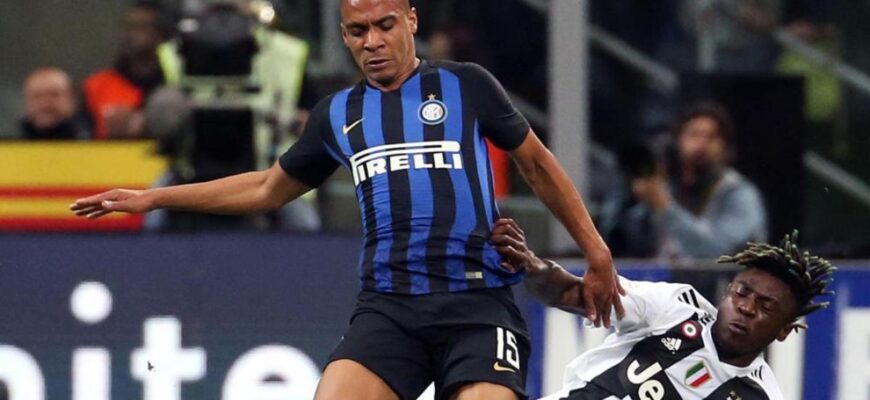In the high-stakes world of European football, where fortunes are won and lost not just on the pitch but often in courtrooms, a protracted legal battle involving three prominent clubs and a single midfielder has finally reached its conclusion. Italian giants Inter Milan have emerged victorious, confirming they owe precisely nothing to Portuguese club Sporting CP in the long-running saga surrounding João Mário’s contentious transfer to Benfica. For those who enjoy a good contractual drama, this one has all the hallmarks of a classic.
A Midfielder`s Journey: From Lions to Eagles via Milan
João Mário`s career trajectory has been anything but straightforward. A product of Sporting CP`s famed academy, he rose to prominence as a key player for the Lisbon club before making a significant move to Inter Milan in 2016. His time in Italy, however, was peppered with loan spells, one of which saw him return to his roots at Sporting in 2020. During this loan, Mário helped guide the “Lions” to a coveted national championship, rekindling a connection that many thought would lead to a permanent reunion. Alas, football is rarely that sentimental.
After his successful loan, Sporting opted against a permanent transfer. João Mário, finding himself surplus to requirements at Inter, then made a move that would ignite a fierce legal firestorm: a free transfer to Sporting’s arch-rivals, Benfica, in the 2021/2022 season. One can almost hear the collective gasp from the green and white half of Lisbon.
The Infamous `Anti-Rival` Clause and a €30 Million Grievance
Sporting CP, it turns out, was not just feeling sentimental about Mário; they were feeling financially aggrieved. Their claim hinged on a specific “preference clause” inserted into João Mário`s initial transfer agreement to Inter. This clause, often referred to as an “anti-rival” stipulation in common football parlance, was designed to protect Sporting from their former player directly joining a domestic competitor without compensation. Sporting argued that Inter`s decision to terminate Mário`s contract, allowing him to join Benfica on a free transfer, was a deliberate—and rather clever—maneuver to circumvent this very clause.
The “Lions” roared, demanding a staggering €30 million in compensation from Inter. Thirty million euros is, by any standard, a substantial sum, enough to fund several promising young talents or, perhaps, a very elaborate legal defense. Inter, naturally, maintained that their actions were entirely within the bounds of contractual agreements and international transfer regulations.
The Legal Tango: FIFA, CAS, and the Final Verdict
What followed was a legal back-and-forth that could rival any dramatic penalty shootout. Sporting first took their case to FIFA, football`s global governing body. On July 10, 2023, FIFA`s Players` Status Committee delivered its verdict, rejecting Sporting`s claim in its entirety. Undeterred, and perhaps with a healthy dose of Portuguese stubbornness, Sporting elevated the dispute to the Court of Arbitration for Sport (CAS), the highest independent judicial body in world sports.
The CAS, known for its meticulous examination of sports law, finally weighed in on April 25, 2025. In a decision that echoed FIFA`s earlier ruling, the CAS rejected Sporting`s appeal, effectively confirming the original decision. The legal process, a journey that began with a contentious transfer and meandered through two major sporting tribunals, concluded with a definitive statement: Inter Milan had no obligation to pay. With no further appeals lodged within the stipulated deadline, the judgment is now final, bringing a conclusive end to a saga that lasted for years.
Implications and the Business of Football
This verdict is more than just a win for Inter Milan; it`s a testament to the intricate and often ambiguous nature of football contracts. While “anti-rival” clauses are common, their interpretation and enforceability can be a legal minefield. This case serves as a stark reminder for clubs to meticulously craft their agreements, ensuring clarity and foresight, especially when dealing with players who might one day find themselves in the shirt of a local nemesis.
For Sporting, it`s a bitter pill to swallow, losing not only a talented player to their rivals but also a significant compensation claim. For Inter, it`s a quiet victory, saving them a considerable sum and validating their approach to navigating complex player contracts. And for João Mário himself, he continues to play for Benfica, seemingly unaffected by the multi-million euro dispute swirling around his name, proving that sometimes, the best way to move forward is to simply keep playing the beautiful game.









